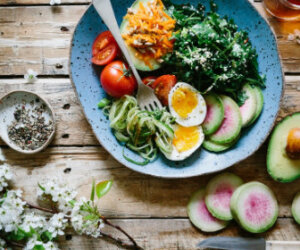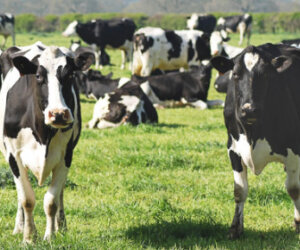[ad_1]
The narrative on beef is continually altering. From paleo to veganism, we’re frequently instructed conflicting details about the healthiness of beef and whether or not or not it ought to be in our diets.
Former vegetarian and environmental lawyer turned rancher, Nicolette Hahn Niman, makes the next case for beef: “I additionally firmly imagine an individual ought to get as a lot nourishment as potential from meals. Not tablets, powders, or liquids concocted in laboratories. Actual meals. Meals made by collaborative efforts of daylight, water, and soil. At occasions dietary supplements could also be useful and even vital. However to me, extended reliance on artifical dietary supplements alerts an unhealthy weight loss plan, one that can’t result in vigorous well being over the long run.”
The next is an excerpt from Defending Beef by Nicolette Hahn Niman. It has been tailored for the net.
Beef is Good Meals
Theories abound about what we must eat and why. We’re instructed all the things from that we must always by no means eat meat to that an all-meat weight loss plan is finest. Individually, I discover the next easy concept most credible:
We should always eat what our our bodies developed to eat.
Ancestors of contemporary people started consuming animals a minimum of 2.6 million years in the past. They began consuming substantial quantities round 1.5 million years in the past.3 Our brains elevated in measurement each due to meat’s wealthy nourishment and due to looking’s inherent complexities. Over tens of millions of years, consuming meat has been interwoven into the very material of our evolution.
Being omnivores has been an amazing survival benefit. On the other finish of the spectrum are koalas, pandas, and monarch butterflies. Every can survive solely on a slender vary of meals. If these particular meals sources are worn out, their extinction is assured. We people, in contrast, are extremely adaptable. We are able to thrive on tens of 1000’s of vegetation, animals, and fungi. Our diets have at all times different broadly, carefully reflecting the local weather and geography during which we reside. Each group of people across the globe has at all times eaten from a smorgasbord of native choices that differs significantly from these of different areas.
I don’t imagine in anyone, hard-and-fast dietary dogma (in truth, I discover most inflexible diets a bit foolish). However I feel it’s clear our our bodies profit tremendously from consuming the animals of the sector, as our ancestors earlier than us did for numerous generations. Bison, antelope, moose, alpacas, yak, gazelles, deer, elk, camels, and caribou are all grazing animals uniquely in a position to reside from grass and different cellulosic vegetation on which people themselves can’t survive. So are cattle. Like different grazing animals, cattle, symbiotically with microorganisms, miraculously convert these vegetation into milk and flesh, that are jam-packed filled with important vitamins. And in distinction with these present in vegetation, vitamins in bovine milk and meat are uniquely usable by the human physique. (Extra about this momentarily.)
I additionally firmly imagine an individual ought to get as a lot nourishment as potential from meals. Not tablets, powders, or liquids concocted in laboratories. Actual meals. Meals made by collaborative efforts of daylight, water, and soil. At occasions dietary supplements could also be useful and even vital. However to me, extended reliance on artifical dietary supplements alerts an unhealthy weight loss plan, one that can’t result in vigorous well being over the long run.
 Diet consultants broadly agree that meals is the very best supply for human nourishment. The US authorities’s Dietary Pointers observe that “vitamins ought to come primarily from meals.”4 The Mayo Clinic web site factors to 3 major advantages of meals, in contrast with dietary dietary supplements. First, meals provide superior vitamin (“complete meals are advanced, containing quite a lot of the micronutrients your physique wants”). Second, meals include vital fiber.
Diet consultants broadly agree that meals is the very best supply for human nourishment. The US authorities’s Dietary Pointers observe that “vitamins ought to come primarily from meals.”4 The Mayo Clinic web site factors to 3 major advantages of meals, in contrast with dietary dietary supplements. First, meals provide superior vitamin (“complete meals are advanced, containing quite a lot of the micronutrients your physique wants”). Second, meals include vital fiber.
Lastly, actual, minimally processed meals additionally maintain varied protecting compounds (“complete meals include different substances essential for good well being,” together with phytochemicals and antioxidants).5 In Nourishment, Dr. Provenza even argues that these “secondary compounds” could also be an important elements of our weight loss plan for sustaining well being and preventing off illness. More and more, the traditional knowledge of consuming a range of complete, unprocessed meals is thought to be the important thing to good vitamin. Dr. Yudkin would have been happy.
Regardless of the annual avalanche of books and articles telling us what to eat, vitamin science is in its infancy. Extra is unknown than identified. To me, this hole in our understanding is probably the most compelling purpose to intention for a weight loss plan wealthy in important vitamins. We merely don’t know whether or not dietary dietary supplements can ever adequately substitute the vitamins our forebears derived from meals. New York College vitamin professor Marion Nestle notes: “Scientific trials hardly ever present a lot profit from taking [nutritional] dietary supplements and . . . generally they present hurt.”6
I used to be lucky to have gotten off to a strong begin. My dad and mom thought of train and consuming effectively the basics for good well being. My mom took nice care in feeding us. She spent plenty of time together with her backyard, made frequent journeys to native farms, cooked each dinner from scratch, baked bread, canned fruits, made yogurt. She taught her kids how you can develop, protect, and put together meals. She additionally confirmed us, daily, the easy pleasure of sitting across the desk with these you’re keen on, sharing dialog and a hearty, homecooked meal.
I attempt to have my weight loss plan grounded on contemporary and fermented meals— effectively raised, regionally sourced, and easily ready. Over the previous decade, after passing the 40-year mark, I consciously elevated eggs and dairy merchandise to get extra good fat and protein. Concurrently, I lowered my sweets and flour. I spent a yr from 2013 to 2014 on a “sugar quick,” during which I abstained fully from something with added sweeteners. I eat extra fruits, greens, and greens than ever. I embody loads of fat and fatty meals—together with nuts, avocados, olive oil, coconut oil, and butter—and I contemplate them important to good well being.
I’ve at all times consumed bovine milk and fats within the type of liquid milk, yogurt, cheese, butter, and, in fact, the occasional bowl of ice cream. However I kept away from consuming meat for over three many years. This included 16 years whereas married to a cattleman and dwelling and dealing on a ranch. Understandably, this usually stunned individuals. However final yr I modified that a part of my weight loss plan, as effectively. After I turned 50, I started to re-evaluate my weight loss plan. I needed to ensure I used to be doing all the things potential to remain in optimum well being. Bone loss apprehensive me. Muscle loss apprehensive me. Weight acquire apprehensive me. These have been all issues I examine and noticed throughout me in girls of their 50s. I used to be beginning to expertise them, too. My weight had elevated, my muscular tissues have been shrinking. I had my bone density examined at Kaiser Permanente and was alarmed to be taught I had osteopenia, the pre-cursor to osteoporosis.
As an environmental lawyer, rancher, and scholar of sustainability, I had come to view animals as a necessary a part of an environmentally optimum meals system. As a researcher of vitamin, I had come to think about omnivory the perfect human weight loss plan. For years, I had been brushing away the quietly gnawing feeling my very own vegetarian weight loss plan was lower than optimum. I continued following a meatless weight loss plan, partly from behavior. I didn’t really feel a bodily urge to eat meat so it was straightforward to imagine my physique didn’t want it and simply keep the course. If I’m completely frank I additionally didn’t really feel like mustering the vitality to grapple with the implications of abandoning a weight loss plan I’d strictly adopted for thus a few years.
 However in August 2019, I took the plunge and had my first chew of meat in over 30 years. It was a burger, an actual beef burger from cattle raised on our ranch, and cooked on the grill by my husband, Invoice. As I raised it towards my mouth it smelled good and nourishing to me. I felt a twinge of trepidation. Was I going to remorse this? However once I took that first chew it simply felt good. The meat was scrumptious. I truly felt a wave of aid. I spotted at that second my weight loss plan was truly extra in accord with my very own values and beliefs once I ate meat than once I kept away from it. Consuming that burger made me really feel I used to be reclaiming management over my well being as I moved into my 50s and past.
However in August 2019, I took the plunge and had my first chew of meat in over 30 years. It was a burger, an actual beef burger from cattle raised on our ranch, and cooked on the grill by my husband, Invoice. As I raised it towards my mouth it smelled good and nourishing to me. I felt a twinge of trepidation. Was I going to remorse this? However once I took that first chew it simply felt good. The meat was scrumptious. I truly felt a wave of aid. I spotted at that second my weight loss plan was truly extra in accord with my very own values and beliefs once I ate meat than once I kept away from it. Consuming that burger made me really feel I used to be reclaiming management over my well being as I moved into my 50s and past.
Clearly, as somebody who lived greater than three many years as a vegetarian, I respect an individual’s option to abstain from meat. But when an individual’s rationale for not consuming beef relies on a perception that it’s essentially unhealthy for the surroundings or human well being, it’s most likely poorly knowledgeable. Nothing about cattle elevating is inherently dangerous to the surroundings. Ecological damage from cattle is because of poor administration. Equally, fears that beef is unhealthy for our well being are proving unfounded. The advantages of consuming meat, however, have been identified since historical occasions.
“Our primitive ancestors subsisted on a weight loss plan composed largely of meat and fats, augmented with greens, fruit, seeds and nuts,” Sally Fallon writes in her e book Nourishing Traditions. “Research of their stays reveal that that they had wonderful bone construction, heavy musculature and flawless enamel.” Fallon factors to a wealth of anthropological and archeological analysis exhibiting the meat- and fat-laden diets of early and conventional peoples contributed to their vigor. Early Mayan stays, from the time when meat was available, present grownup male skeletons averaging eight centimeters taller than later stays, when meat grew to become scarce. Russians within the Caucasus Mountains, who’ve the very best proportion of centenarians on the planet, devour ample fatty meats and dairy. Populations in Soviet Georgian with probably the most meat and fats of their diets are these with the best longevity. “Equadorans from Vilcabamba, additionally identified for his or her lengthy lifespans, favor complete milk and fatty pork,” Fallon explains.7
None of that is shocking, in accordance with Fallon, as a result of with out animal merchandise it’s tough to acquire enough protein and minerals in a type the physique can use. Animal-based meals not solely provide protein and minerals, they supply the required fat-soluble catalysts wanted for mineral absorption. “Zinc, iron, calcium and different minerals from animal sources are extra simply and readily absorbed.”8
Fashionable vitamin science, as imperfect as it’s, has helped doc lots of beef ’s advantages. A 2013 article in The Guardian calls beef “one of the nutritious meals” obtainable, noting “beef has appetite-sating high-quality protein, which has all of the important amino acids wanted (isoleucine, leucine, lysine, methionine, phenylalanine, threonine, tryptophan, valine and extra) to construct muscle and bone.” Beef, it factors out, can also be an incredible supply of B nutritional vitamins, iron, and zinc.9 To that listing I might add vitamin D, present in only a few meals, but obtainable in probably the most bio-available type in beef liver.
Notes
3. B. Pobiner, “Proof for Meat-Consuming by Early People,” Nature Schooling Information, 2013, www.nature.com/scitable/data/library/evidence-for-meat -eating-by-early-humans-103874273.
4. “Iron: Dietary Complement Reality Sheet,” a Nationwide Institutes of Well being reality sheet, reviewed April 8, 2014, http://ods.od.nih.gov/factsheets/Iron-HealthProfessional.
5. “Dietary supplements: Diet in a Tablet?,” web site of the Mayo Clinic, January 19, 2013, www.mayoclinic.org/healthy-living/nutrition-and-healthy-eating/in-depth /dietary supplements/art-20044894.
6. M. Nestle, What to Eat (North Level Press, 2007), 468.
7. Fallon, Nourishing Traditions, 27.
8. Fallon, Nourishing Traditions, 27.
9. J. Blythman and R. Sykes, “Why Beef Is Good for You,” Guardian, December 13, 2013, www.theguardian.com/lifeandstyle/2013/dec/16/ why-beef-is-good-for-you-grass-fed-grain-fed.
Beneficial Reads
Defending Bovines, Butter, and Beef
Why Rabbit is the New Rooster
[ad_2]


